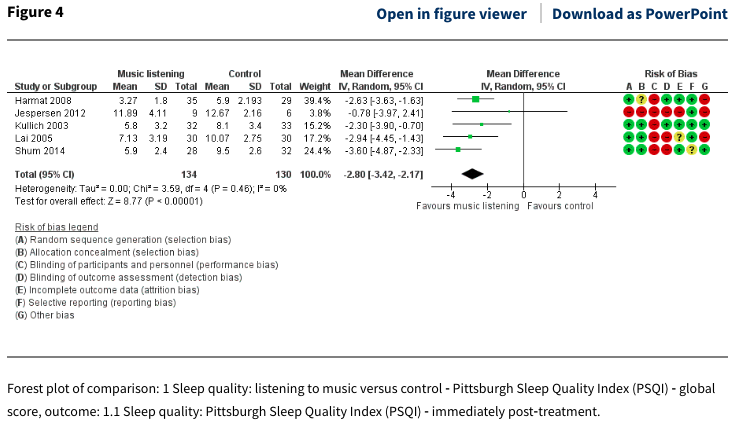The specific notable claim appears to be the wikipedia article, which I'll address.
###tl;dr
While there is some good evidence that music may help adult insomniacs get better sleep, there does not appear to be good evidence that lullabies help children fall asleep. Certainly the evidence presented in the wikipedia article is lacking. All the same, I'm glad I sang to my kids.
###Specific claims regarding sleep
The article has a section on Therapeutic Value (thank you @GEdgar for pointing it out in the comments). This section and the following section on mother-infant interaction (which includes some additional sources that could include scientific evidence) use the string "sleep" four times. Lets walk through them:
Dr. Perlman's studies
Studies conducted by Dr. Jeffery Perlman, chief of newborn medicine at New York–Presbyterian Hospital's Komansky Center for Children's Health, find that gentle music therapy not only slows down the heart rate of prematurely delivered infants but also helps them feed and sleep better.
Dr. Perlman is a the chief of newborn medicine at New York - Presbyterian, and I've been to a few of his lectures, but he hasn't published any peer reviewed original research on the relationship between music and premature infant sleep. He has written a review that, among many other things, says music in the NICU might be better for neonates than noise.
This does not provide evidence for the claim.
###Loewy's 2013 paper in Pediatrics:
More recent research has shown that lullabies sung live can have beneficial effects on physiological functioning and development in premature infants. The live element of a slow, repetitive entrained rhythm can regulate sucking behavior. Infants have a natural tendency to entrain to the sounds that surround them. Beat perception begins during fetal development in the womb and infants are born with an innate musical preference. The element of live breathing sounds can regulate infant heart rate, quiet-alert states, and sleep.
This paragraph is sourced to a paper by Loewy et al in Pediatrics. This paper does exist. It measures the effect of three different musical interventions on premature infants, and that music includes lullabies. However, the lullaby did not show any significant effect on sleep. Only the "Remo ocean disc... a musical instrument... meant to simulate the fluid sounds of the womb" showed a significant effect on sleep. The wikipedia article misinterprets this as an element of a lullaby, but in fact, it is a different intervention entirely.
This does not provide evidence for the claim.
###Hospice patients
The third use of "sleep" is about hospice patients, and not relevant to the claim that lullabies help children fall asleep.
###Kangaroo care
The final use of "sleep" in a section about evidence is as follows:
In one Taiwanese study of Kangaroo Care, a technique practiced on newborn infants in which a mother holds her child tightly against her chest, it was demonstrated that infant–mother dyads who listened to their choice of lullaby were associated with more quiet sleep states and less occurrence of crying by the infant...
This references a trial reported in the International Journal of Nursing Studies on a combined intervention of kangaroo care (incubator time is interrupted for 60 minutes of skin to skin contact with the mother) plus a recorded lullaby. This intervention (kangaroo care plus lullaby) was compared to a control of usual incubator care (no skin to skin contact with mother and no recorded lullaby). The measure was recorded observation of an infant after the intervention or a control period (no intervention). Observation was one of 6 states, quiet sleep, active sleep, drowsy, quiet awake, active awake, and crying. All 6 states were compared between the control and treatment on each of three days. There was one day when the difference between control and treatment met significance (not corrected for multiple comparisons) for quiet sleep, but not overall sleep. On the other days it did not.
This does not provide evidence for the claim.
Additional evidence, not in the article
There is an additional paper that is sometimes cited as evidence for the effect of lullabies on children's sleep. This paper reports a pilot study not designed to find a statistically significant difference between a lullaby intervention and a control on EEG recordings of healthy near term premature infants. It did not find a statistically significant difference, but did find a trend. That study was reported in 2011. The results of follow up study to the pilot were never reported.
This does not provide evidence for the claim
There is good evidence from a Cochrane meta-analysis supporting a related claim about music in adults. This meta-analysis suggests that music can help subjective report of sleep quality in adults, but not sleep onset latency (i.e., there isn't good evidence supporting the claim that music will help adults fall asleep). The forest plot from this Cochrane meta-analysis below demonstrates the effect on sleep quality. Notably, only three of the pooled studies measured the effect of music listening at bedtime (Harmat, Jespersen, and Lai), and only two of those had a confidence interval that didn't include zero. Jespersen, though, used a small sample size (15), and consequently had a very wide confidence interval. See the forest plot below:



